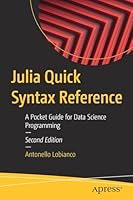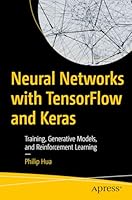
A Practical Introduction to Python Programming
- Length: 263 pages
- Edition: 1
- Language: English
- Publisher: Independently published
- Publication Date: 2020-11-22
- ISBN-10: B08P27MFKF
- ISBN-13: 9798569751655
My goal here is for something that is partly a tutorial and partly a reference book. I like how tutorials get you up and running quickly, but they can often be a little wordy and disorganized. Reference books contain a lot of good information, but they are often too terse, and they don’t often give you a sense of what is important. My aim here is for something in the spirit of a tutorial but still useful as a reference. I summarize information in tables and give a lot of short example programs. I also like to jump right into things and fill in background information as I go, rather than covering the background material first. This book started out as about 30 pages of notes for students in my introductory programming class at Mount St. Mary’s University. Most of these students have no prior programming experience, and that has affected my approach. I leave out a lot of technical details and sometimes I oversimplify things. Some of these details are filled in later in the book, though other details are never filled in. But this book is not designed to cover everything, and I recommend reading other books and the Python documentation to fill in the gaps. The style of programming in this book is geared towards the kinds of programming things I like to do—short programs, often of a mathematical nature, small utilities to make my life easier, and small computer games. In fact, the things I cover in the book are the things that I have found most useful or interesting in my programming experience, and this book serves partly to document those things for myself. This book is not designed as a thorough preparation for a career in software engineering. Interested readers should progress from this book to a book that has more on computer science and the design and organization of large programs. In terms of structuring a course around this book or learning on your own, the basis is most of Part I. The first four chapters are critically important. Chapter 5 is useful, but not all of it is critical. Chapter 6 (strings) should be done before Chapter 7 (lists). Chapter 8 contains some more advanced list …………………….







